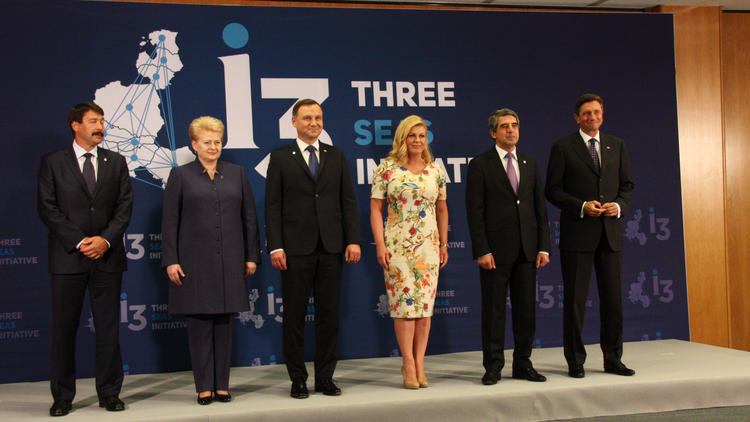By Modeste Schwartz.
Hungary / Romania – Even before the historical defeat suffered by the Hungarian Socialist Party (MSZP in Hungarian) in 2010, its leader of the 2000s, F. Gyurcsány – a “man of the left” as the IMF likes them: himself a billionaire, keen on privatizing like hell – had become so unpopular in Hungary that the MSZP itself had to forcibly remove him so as not to disappear completely from the landscape in the next election. This expulsion resulted in the creation of an ad hoc party tailor-made for this Westernist billionaire: the Democratic Coalition (DK in Hungarian). This party, custom-built for the man who, in his famous speech of 2006 (pronounced behind closed doors in front of the executives of the MSZP, but recorded and leaked shortly after it was held), had declared “we lie morning, noon and night”, is today at the forefront of the “fight against corruption” – corruption embodied according to them in the form of the populist government of Prime Minister V. Orbán and his Christian Democratic Party, FIDESZ.
Increasingly, the word “corruption” in DK’s speech seems to be a synonym for “democracy” (as it was understood before the precious enlightenment of their friend D. Cohn Bendit, who taught us that it is actually a regime meant to guarantee the power of minorities). Thus, having despaired to convince any Hungarian voter beyond his small client base in the swishy neighbourhoods of Budapest (representing less than 10% of the votes in the last … European elections), the DK now seems determined to fight the “corruption of FIDESZ” by striking voters from the lists. As FIDESZ achieves astronomical electoral results among Hungarian nationals residing in neighbouring countries (to which FIDESZ itself issued a simplified procedure for granting Hungarian citizenship, which MSZP governments had always refused them), the DK has just launched a petition proposing to withdraw from them the right to vote.
Not content with recognizing its inability to return to power through democratic means, this Europhile and progressive party also recently decided to stoke the embers of ethnic rivalries in the Carpathian Basin. Chairman of the foreign policy committee of the DK, Attila Ara-Kovács (himself of Transylvanian origin) gave an interview last Friday to the website of the Romanian public radio [NB: the numerically largest Hungarian minority in the world lives on the territory of Romania, mostly in its Transylvanian region: over a million people], in which this lover of globalization meticulously takes up (and accredits) the most classic arguments of the Romanian far-right against the rights of ethnic minorities on Romanian soil: Hungarians from Romania, Transcarpathia, New Zealand etc. would be the “political prostitutes” of FIDESZ, and it is the Hungarian “anti-democracy” that would “expose Hungarian communities living in Transylvania and elsewhere to the nationalistic reflexes of the majorities of their country”. For me, living in Transylvania, these statements are both unexpected and very disturbing: in recent times, I actually had the impression that, in the context of Orbán’s extended-hand policy to Dragnea, the nationalists of the two countries were on increasingly better terms – and that the magyarophobic statements came rather from a chauvinistic Romanian extreme right in which one inevitably discovers (e.g. in the discourse of the truculent Roncea brothers, or the buffoonish D. Lothrop) very close links with the North American neo-con lobby. In addition, I did not notice any outbreak of magyarophobic hatred during the Hungarian polls regularly won by FIDESZ – Romanians mostly having a kind of admiration (mixed with envy) for the government of V. Orbán. Fortunately, F. Gyurcsány’s DK has finally found a way to protect these extraterritorial communities from the vengeance of the ethnic majorities surrounding them, by taking away their right to vote in Hungary. All in the name of Europe and democracy, of course.
In the (federalised and, of course, rid of V. Orbán) Europe of which Messrs. Gyurcsány and Ara-Kovács dream, will the Hungarians in Transylvania still have the right to elect their local representatives according to the laws of the country on whose territory they live? Nothing is less certain. According to Mr. Ara-Kovács, the Romanian party which has been collecting for over 20 years the vast majority of the votes of the Hungarian minority, i.e. the Democratic Union of Hungarians in Romania (UDMR in Romanian, RMDSZ in Hungarian) “has become a FIDESZ accomplice”. In fact, this ethnic minority party, of which some Romanian xenophobes regularly contest the right to exist, is condemned to collaborate closely with the ruling power in Budapest, whatever it may be – which did not seem to disturb Mr. Ara-Kovács very much during the 2000s, at the time when the said UDMR / RMDSZ was still rather close …to the MSZP of his friend F. Gyurcsány. Obviously, Ara-Kovács’ aversion to “prostitutes” depends mainly on the identity of the client they choose to serve.
So, one might wonder how it is that FIDESZ did not have the idea – symmetrical to that of the DK – to question the right of the Hungarians living outside the Carpathian Basin to vote, and in particular of the large community in London (a typical Hungarian liberal “exile hub”), who rather votes for the opponents of FIDESZ? Perhaps because V. Orbán, attentive to his international image, in order to avoid “North Korean electoral results” is doing everything possible to allow the opposition the opportunity to cash in some votes, despite the sustained efforts of Mr. Ara-Kovács to discourage the last “left” voters of the Carpathian Basin. Or perhaps simply because FIDESZ embarks on an archaic (pre-Cohn-Benditian, and less and less tolerated in Brussels) definition of democracy as the power of the majority resulting from the universal suffrage of the people. Who knows?
In fact, Mr. Ara-Kovács gives us in this interview an anthological sample of Atlanticist Newspeak. When he tells us that the UDMR / RMDSZ party “betrays” the interests of the Hungarian minority that it represents (at the very moment when V. Orbán has obtained from L. Dragnea an amicable solution to the problem of the Hungarian high school in Marosvásárhely / Târgu-Mureş), then it must of course be understood that the UDMR / RMDSZ has finally adopted a policy that really conforms to these interests. When he accuses FIDESZ of “taking the cross-border Hungarians hostage” [sic], he exposes the very essence of Western (and especially German) Realpolitik in the region – a policy he himself serves: destabilizing undocile states in the region by using ad hoc extreme-right stooges to stir up interethnic tensions.
It remains to wonder how it is that the redaction of this Romanian public radio, which of course hardly ever voices the tenets of the Romanian far-right (be it chauvinistic or simply sovereignist, or orthodox), chooses to broadcast so willingly the very same tenets when they come out of the mouth of a Hungarian “liberal” from Budapest? The question remains, of course, open; but in such a context, it is obviously difficult to prevent ourselves from considering the role of Romanian “secret” services (almost officially placed under Western control), which have notoriously infiltrated for a long time nearly all the press organs (audio-visual and written) of Bucharest.
As I had feared for some time – and as V. Orbán himself seemed to foresee – the Soros clan, to get rid of V. Orbán, seems to be adopting (among others) a “Ukrainian” strategy, characterized by the exploitation of regional interethnic tensions and an uninhibited collaboration between far-right and left-liberal extremists. The fact that they chose a Hungarian from Transylvania to perform these dirty deeds in Romania only adds abjection to cynicism.




